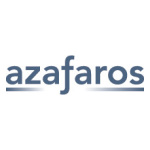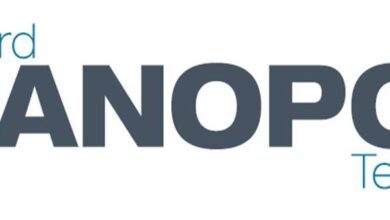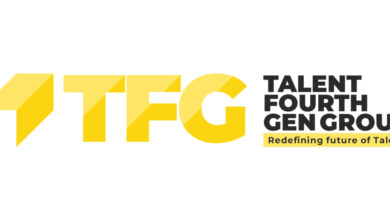Azafaros Receives FDA’s IND Clearance and Fast Track Designation for Lead Asset AZ-3102

LEIDEN, The Netherlands–(BUSINESS WIRE)–Azafaros B.V. today announced that it has received Investigational New Drug (IND) clearance from the United States Food and Drug Administration (FDA) to conduct a clinical Phase 2 trial for its lead asset, AZ-3102, for the treatment of GM2 gangliosidosis (GM2) and Niemann-Pick disease type C (NP-C). In addition to the IND clearance, the FDA has granted Fast Track Designation for the investigation of AZ-3102 for GM1 and GM2 gangliosidoses and NP-C. Fast Track is a process designed to facilitate the development and expedite the review of drugs to treat serious conditions and fill an unmet medical need.1
Azafaros’s RAINBOW Phase 2 trial is a multinational, double-blind, placebo-controlled, parallel-group trial investigating the safety, tolerability, and pharmacokinetics of a once-daily oral administration of AZ-3102 for 12 weeks in GM2 and NP-C patients between 12 and 20 years of age. The study is being conducted in the U.S. as well as in other countries. The pharmacodynamics and the impact of AZ-3102 on potential disease biomarkers will also be measured during the trial. Professor Marc C. Patterson, MD, Professor of Neurology, Pediatrics, and Medical Genetics in the division of child neurology at the Mayo Clinic in Rochester, Minnesota, is the principal investigator for the U.S. part of the study.
“GM2 gangliosidosis and Niemann-Pick disease type C are debilitating, life-shortening diseases with devastating impact on patients and their families, and there is an urgent need for new therapeutic options. AZ-3102 has unique characteristics that confer the potential to be an effective therapeutic innovation for these patients,” said Professor Patterson.
Stefano Portolano, MD, Chief Executive Officer of Azafaros, added: “The IND clearance and Fast Track Designation highlight AZ-3102’s potential and demonstrate the ability of the Azafaros team to achieve our ambitious goals. We look forward to an exciting year ahead as we expect to progress further with our Phase 2 and start our Phase 3 pivotal studies, two important milestones on our mission to bring novel treatment options to patients living with severe rare genetic diseases.”
About AZ-3102
AZ-3102 is a therapeutic candidate developed for people affected by Lysosomal Storage Disorders (LSDs) with neurological involvement. AZ-3102 is an orally available, brain penetrant azasugar, engineered to have a unique dual mode of action by inhibiting two key enzymes which modulate the metabolism of glycosphingolipids.
In 2022, the compound received Fast Track Designation for GM1 and GM2 gangliosidoses as well as Niemann-Pick disease Type C (NP-C), and Orphan Drug Designations (ODD) for GM2 gangliosidosis (Sandhoff and Tay-Sachs Diseases) and NP-C from the FDA.
About Lysosomal Storage Disorders
Lysosomal storage disorders are a group of over 70 diseases that are characterized by lysosomal dysfunction, most of which are inherited as autosomal recessive traits. These disorders are individually rare but collectively affect 1 in 5,000 live births. They typically present in infancy and childhood, although adult-onset forms also occur.
They are caused by genetic mutations affecting the function of specific enzymes, transporters, receptors, or hormones involved in metabolizing and transporting the body’s building blocks such as sugars, proteins, and lipids.
These malfunctions can impair either the assembly of crucial metabolic end-products which are needed for the normal function of the body or lead to harmful accumulations of intermediate metabolites.
GM1 gangliosidosis and GM2 gangliosidosis (Tay-Sachs and Sandhoff diseases), Niemann-Pick, Krabbe, Farber, Fabry and Gaucher diseases are examples of lysosomal lipid storage disorders.
GM1 gangliosidosis and GM2 gangliosidosis (Tay-Sachs and Sandhoff diseases) are caused by the accumulation of GM1 or GM2 gangliosides, respectively, in the central nervous system (CNS), resulting in progressive and severe neurological impairment and early death. These diseases mostly affect infants and children, and no disease-modifying treatments are currently available.
Niemann Pick disease type C (NP-C) is a progressive, life-limiting neurological condition caused by mutations in the NPC1 or NPC2 gene and aberrant endosomal-lysosomal trafficking, leading to the accumulation of various lipids, including gangliosides in the CNS. The onset of disease happens throughout the lifespan of an affected individual, from prenatal life through adulthood. The mainstay of therapy is symptom management.
About Azafaros
Azafaros is a clinical stage company founded in 2018 with a deep understanding of rare genetic disease mechanisms, a compound library from Leiden University, and led by a team of highly experienced industry experts. Azafaros aims to build a pipeline of disease-modifying therapeutics to offer patients and their families new treatment options. The company’s lead clinical-staged program is AZ-3102 a small molecule, orally available, brain penetrant azasugar, with the potential to treat GM1 gangliosidosis and GM2 gangliosidosis (Tay-Sachs and Sandhoff diseases) and Niemann Pick disease type C (NP-C). By applying its know-how, network, and courage, the Azafaros team challenges traditional development pathways to rapidly bring new drugs to the rare disease patients who need them. Azafaros is supported by a syndicate of leading Dutch and Swiss investors including Forbion, BioGeneration Ventures, BioMedPartners and Schroder Capital.
———–
Contacts
For further information:
Azafaros B.V.
Email: [email protected]
www.azafaros.com
For media inquiries:
Trophic Communications
Eva Mulder and Marie-Theresa Weickert
Email: [email protected]
Phone: +49 (0) 175 222 57 56




